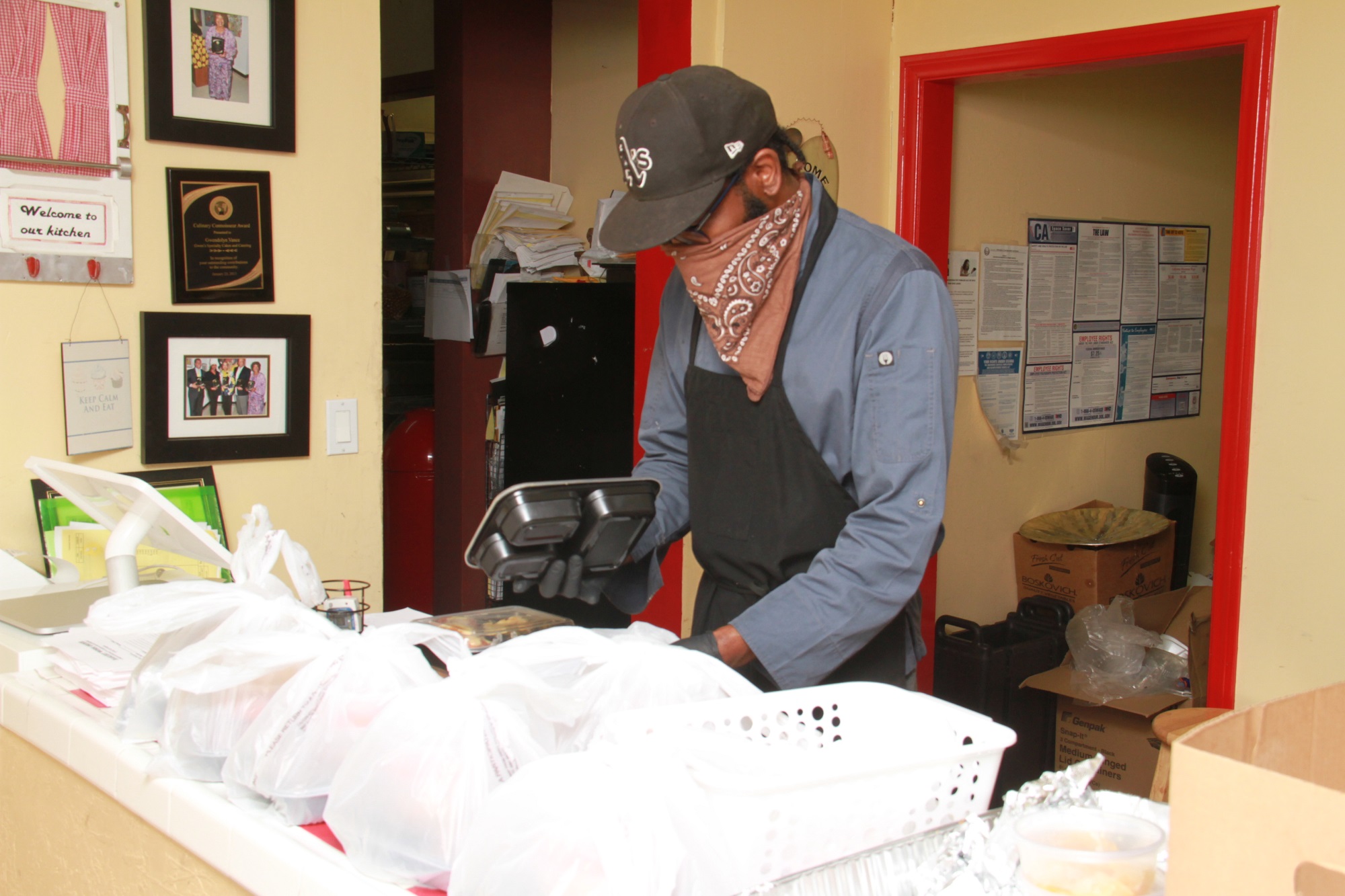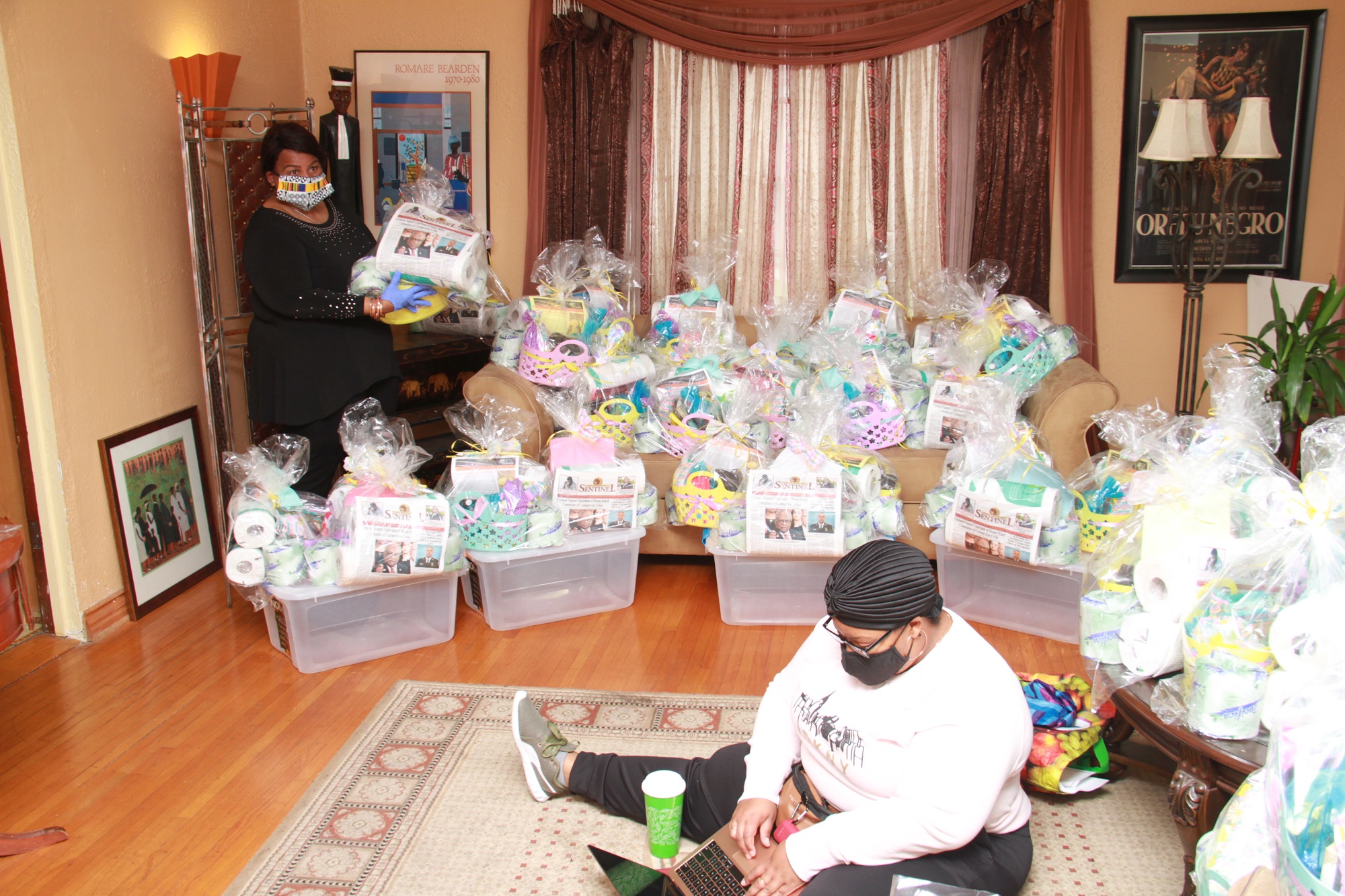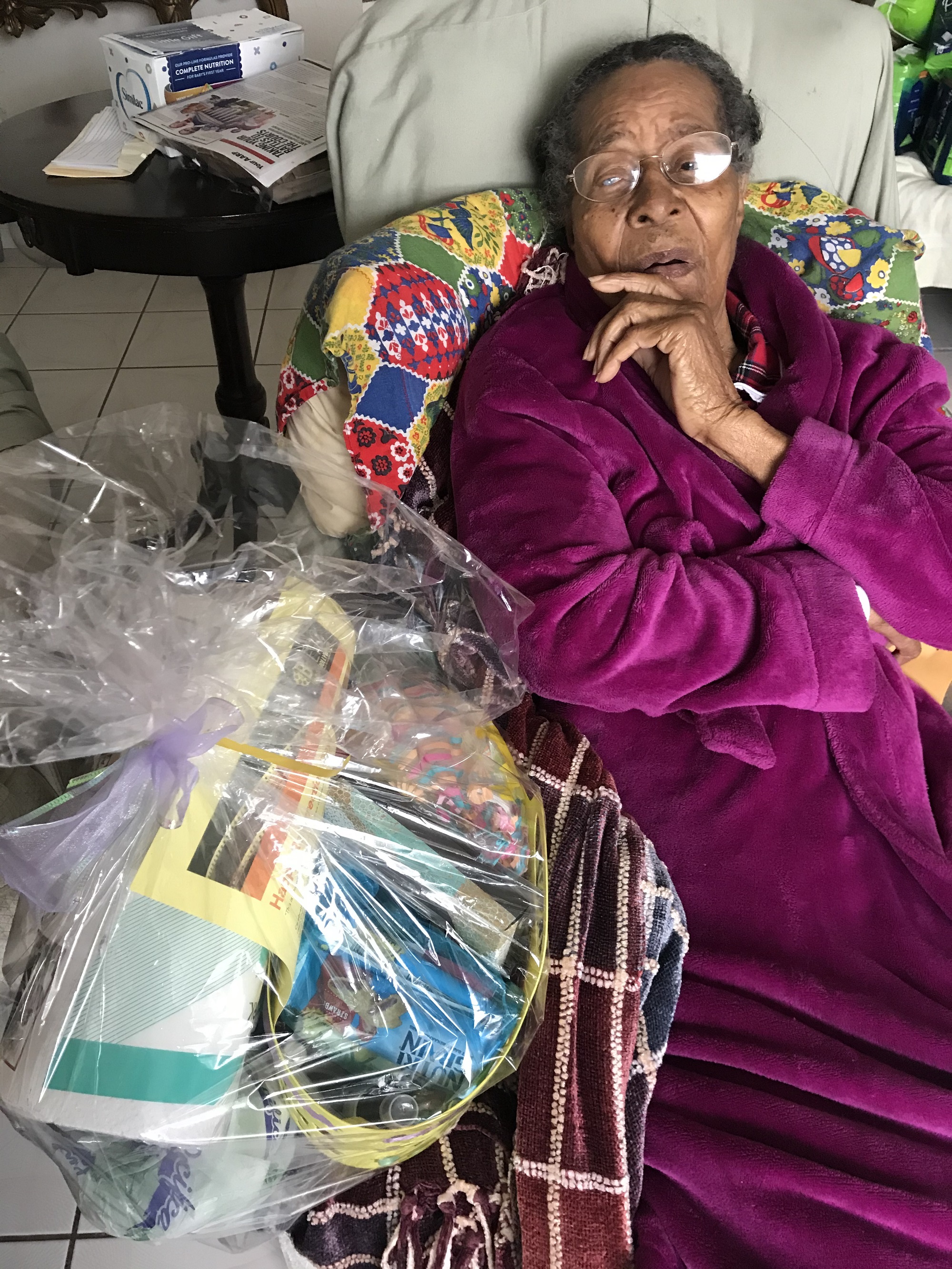Los Angeles Sentinel
Rep. Waters Meets with CBS to Discuss Media Diversity & Inclusion
LOS ANGELES SENTINEL — The meeting followed CBS’ announcement of its 2020 presidential election coverage team, which was made up of eight reporters and four associate producers – none of whom were African American.
By Sentinel News Service
WASHINGTON – Congresswoman Maxine Waters (CA-43), Chairwoman of the House Financial Services Committee, issued the following statement on her meeting with CBS Vice President of News and Executive Director of Staff Development and Diversity, Kim Goodwin, and CBS Vice President and Washington Bureau Chief, Christopher Isham.
The meeting followed CBS’ announcement of its 2020 presidential election coverage team, which was made up of eight reporters and four associate producers – none of whom were African American. The CBS staffing announcement was met with widespread criticism from journalists, civil rights leaders, and members of Congress – including Congresswoman Waters.
“Within 24 hours of my Twitter request for an explanation as to why CBS Corporation has, to date, failed to hire a single African American reporter or producer to cover the 2020 presidential election, CBS Vice President of News and Executive Director of Staff Development and Diversity, Kim Goodwin, and CBS Vice President and Washington Bureau Chief, Christopher Isham, requested a meeting and spoke with me in my office on Capitol Hill.
“The CBS representatives accepted full responsibility and understood the troubling optics– and subsequent public backlash — that occurred as a result of the rollout of their 2020 presidential election team. CBS admitted that the initial 2020 campaign team did not reflect the diversity that the company had committed to; assured me that it will not happen again; and revealed that in the coming months they will unveil a more diverse and inclusive slate of African American journalists and journalists from a wide range of backgrounds and experiences. They also identified key individuals in Washington, D.C. and New York City, NY whom they have brought onto their team to fulfill this mission and ensure their news organization reflects the diversity of the country and the communities who will most certainly be engaged in the 2020 elections.
“I will hold CBS accountable to their diversity and inclusion commitments. In addition, I will work with my colleagues in the Congressional Black Caucus for continued engagement and follow up on diversity and inclusion at CBS and all that they have agreed to.”
Throughout her career in public service, Congresswoman Waters has been a leading advocate for diversity and inclusion in the media. Her years-long efforts during the Comcast-NBC Universal merger review — which included holding congressional hearings, urging the Federal Communications Commission (FCC) to extend the public comment period, filing comments on behalf of independent minority producers, directors, and writers, and leading the congressional efforts to ensure that the terms of the merger included voluntary commitments and proposals for media diversity – led to the creation of four independently minority-owned channels: Sean “Diddy” Combs’ Revolt, Magic Johnson’s Aspire, Robert Rodriguez’s El Rey, and Constantino “Said” Schwarz’s BabyFirst Americas television networks.
As a result of her legislative efforts and commitment to media diversity and inclusion, Congresswoman Waters has been recognized by many of the nation’s leading media organizations and coalitions for journalists and communities of color, including the National Newspaper Publishers Association (NNPA), National Association of Black Journalists (NABJ), and the National Hispanic Media Coalition (NHMC).
This article originally appeared in the Los Angeles Sentinel.
#NNPA BlackPress
BHERC’s Operation Love Delivers Love, Easter Sunday Meals and Essential Goods to Seniors in Los Angeles Area
NNPA NEWSWIRE — “Operation Love” meals and gift baskets were delivered to seniors including retired nurses, caregivers and other that have labored in the community for many years among others. All have in some way or another added to the betterment of Los Angeles over the decades. “This small showing of love is both a practical and a heartfelt demonstration of the importance of our seniors. We want our seniors to know they have not been forgotten during this mandated and necessary physical distancing,” states Sandra Evers-Manly, president of the Black Hollywood Education and Resource Center (BHERC).
By Sentinel News Service
The Black Hollywood Education and Resource Center (BHERC) continued its “Operation Love” outreach Sunday, April 12, 2020 in the Los Angeles area targeted towards seniors and those with “underlying” health conditions who have been extremely impacted and need assistance. This effort provided a heartwarming – from a distance — welfare check, Easter Sunday meal and gift basket of essential items for 100 seniors. The program has reached over 500 seniors since the start of the COVID 19 pandemic.
“Operation Love” meals and gift baskets were delivered to seniors including retired nurses, caregivers and others that have labored in the community for many years among others. All have in some way or another added to the betterment of Los Angeles over the decades. “This small showing of love is both a practical and a heartfelt demonstration of the importance of our seniors. We want our seniors to know they have not been forgotten during this mandated and necessary physical distancing,” states Sandra Evers-Manly, president of BHERC.

The gift basket included hard to find items such as: gloves, toilet paper, face masks, hand sanitizer, paper towels and various other essential items. The meals and baskets were prepared and delivered using City/State and CDC guidelines by a host of volunteers. Contributors to the gift baskets include the Barbershop Health Outreach Program (www.blackbarbershop.org), Dr. Bill Releford, founder, Mothers in Action, Tracy Mitchell, president and Larry Chapman, production coordinator, Record One Studio. “You thought of everything,” exclaimed recipient Millicent Newkirk. “You even thought to include the L.A. Sentinel and I have truly missed my paper!”
During this unprecedented time in our lives, this COVID-19 worldwide health and humanitarian pandemic is redefining the very way we live out our lives daily. In many instances, eclipsing the future of what daily work, education, entertainment and play will look like in the future for all of us. In addition to the need for essential supplies is the need for emotional support. “Operation Love delivers a strong message that you are not alone in these difficult times. We are with you!” remarked Evers-Manly.

At BHERC, this is the kind of action that has characterized the BHERC family, its friends and colleagues; a unique demonstration of enthusiastic, abiding support and responsive manner when called upon over the years. BHERC encourages everyone that can to act. “Let’s remind the ones around us how much they matter. Encourage them to stay strong and steadfast,” noted Evers-Manly.
The BHERC family encourages everyone to consider supporting a senior. You can:
- Call a senior to check on their well being
- If shopping (do so under City/State and CDC guidelines), pick up an item or two for a senior or someone in need (practice social distancing)
- Help with an online task
- Make a meal and drop off (practice social distancing)
- Send an online order to someone in need

It was an emotional day full of love and thanksgiving and the camaraderie BHERC members, community volunteers and members of the National Black Nurses Association participating in the distribution.
In addition to the focus on seniors, the BHERC Operation Love is focused on distributing masks to the homeless in Los Angeles and supporting the National Black Nurses Association (NBNA). Last week, the BHERC president contributed to the NBNA to create a special fund to support nurses on the front-line battling COVID19 and to curate an online instructional program for Nurses to Help Nurses. The NBNA donation will also provide 1000 masks for NBNA nurses and provide support for their distribution of masks and meals where chapters are located across the country. “Each and every one of us must reach out in a safe way to make sure vulnerable populations have someone to talk to, have medications and have enough food to eat during these difficult times,” expressed Dr. Martha A. Dawson, president of the National Black Nurses Association. “We are pleased to partner with Ms. Sandra Evers-Manly during these challenging times.”
Everyone can all join in the fight by making just a quick phone call or sending a simple text message. Keeping each other positive and reminding your neighbors and loved ones that even in our isolation, we are not alone. #BHERCStrongTogether
For more information about BHERC email bherc@bherc.org.
#NNPA BlackPress
Wells Fargo sponsors Taste of Soul’s “Small Business Owner Giveaway”
LOS ANGELES SENTINEL — “I think ultimately we just want to inject some kind of capital into a small business because any amount of money when your a small business definitely impacts something whether it’s buying supplies or allowing you to buy more inventory,” said Wells Fargo Branch Manager Mario Holton.
By Faith Petrie, Contributing Writer
Amidst the bustling activities the 14th Annual Taste of Soul Family Festival summoned, Wells Fargo Branch Manager Mario Holton was preparing to do what he proclaimed “the coolest thing I’ve experienced thus far.”
That “cool thing” was the duty to present Yolanda Woodard, Next Generation Youth Television & Film Academy founder and chairwoman, with a check for $500. The bank located on Crenshaw and Stocker sponsored Taste of Soul’s Small Business Owner Giveaway in an effort to support local businesses in the area.
“We really wanted to empower the small businesses in the community,” Holton said. “We could have had a booth at Taste of Soul and did free giveaways but we felt like [the giveaway] was a lot more impactful because we already have a huge presence in this community.”
With three years as branch manager and four and a half years total working at Wells Fargo under his belt, Holton has witnessed numerous Taste of Soul events. In the past, participation by Wells Fargo could be seen in the form of classic spin-the-wheel booths and even the appearance of the Wells Fargo stagecoach. This year, the bank wanted to directly make a change in someone’s life.
“We felt it would be a lot more impactful if we actually gave money to a small business owner in the community and invested in the local community versus just having something there just to be seen,” Holton said.
Woodard, the giveaway recipient also wants to make an impact in a different way. Along with her partner Nicholas Jeffrey Moon, Woodard has created an academy aimed at inserting film programs into disadvantaged student’s lives.
“My whole life of being here in California, I have identified that South Central and East Los Angeles, our youth middle school and high schools, really don’t have an extensive film program the way the schools in the valley have,” Woodard said.
With a goal of opening in 2021, the academy will train young children of color in 33 departments of the film industry spanning anywhere between costumes to production managing and place students in actual productions to get direct work experience.
“It’s just my heart to train our children and just make sure that they’re given knowledge at a young [age] and it keeps them off of the streets if they decide to come to a program and they have hope, a real program that they get certified training working in the industry,’” Woodard said.
To Holton, the giveaway is a way for Wells Fargo to give businesses a push in the right direction to start their business.
“I think ultimately we just want to inject some kind of capital into a small business because any amount of money when your a small business definitely impacts something whether it’s buying supplies or allowing you to buy more inventory,” Holton said.
With the money, Woodard and Moon plan to open a bank account for the academy as well as fund a grant writer to gain additional funding. Being awarded the money meant “unity” to Woodard, a semblance of community within a larger scale.
“The love of Taste of Soul saying we support this community as a family, we support all business owners as a family, we have love for all business owners where none of them are going to be left behind,” Woodard said. “They have love for a business owner just like your parents would have or just like your family would have, that’s what’s needed for people to be successful, that’s what’s needed for our youth to be successful you have to have enough love in your heart to transfer a skill.”
For more information regarding resources for starting a business visit https://wellsfargoworks.com/.
The post Wells Fargo sponsors Taste of Soul’s “Small Business Owner Giveaway” appeared first on Los Angeles Sentinel.
#NNPA BlackPress
OP-ED: California Must Reform Discriminatory Gang Suppression Scheme
LOS ANGELES SENTINEL — “These laws create a separate system of justice for communities of color, with criminal charges that don’t require actual wrongdoing, and lead to longer sentences, restricted fundamental freedoms, and a tilted playing field in the courtroom. The legal consequences are clear: more Black and Brown bodies pulled from their families and communities, locked up, and forgotten. But these legal consequences are just the beginning. The truth about California’s gang suppression scheme is that it’s not just putting people in prison, it’s stripping entire communities of their futures. And because of that, it’s making us all less safe.”

Khalid Alexander (Courtesy photo)
By Khalid Alexander, The Los Angeles Sentinel
Thirteen years ago, I moved to a heavily-policed neighborhood in Southern California. I realized things were different when suddenly I was pulled over by the police three times in one week. I’d been pulled over before, but something other than the frequency of these stops stood out to me. It was the first time police asked me if I was a gang member.
What I have learned since then, as the founder of Pillars of the Community and a father of two young men of color, is that this questioning about “gang affiliation” is a part of a long history of law enforcement’s attempt to label, criminalize, and abuse people in Black and Brown communities. What those officers were really trying to figure out was whether they could get away with violating my rights as a human being and constitutional protections as a citizen.
Recent years have brought new attention to the real impact of California’s gang laws. We’re at a strange inflection point: There are truly dangerous criminal gangs within law enforcement, who continue to act with impunity thanks to the inaction of prosecutors (L.A. County District Attorney Jackie Lacey, for example, is known for failing to prosecute bad police, and refusing to even exclude known bad cops from building bad cases). Those same police are maintaining a database of supposed gang members that’s so flawed, it includes the names of kids under one year old.
These laws create a separate system of justice for communities of color, with criminal charges that don’t require actual wrongdoing, and lead to longer sentences, restricted fundamental freedoms, and a tilted playing field in the courtroom. The legal consequences are clear: more Black and Brown bodies pulled from their families and communities, locked up, and forgotten. But these legal consequences are just the beginning. The truth about California’s gang suppression scheme is that it’s not just putting people in prison, it’s stripping entire communities of their futures. And because of that, it’s making us all less safe.
Contact with the criminal legal system can permanently destroy a person’s economic mobility. A criminal record is damaging enough, but add gang allegations and it becomes almost impossible for a person to transition out of prison, successfully find work, reconnect with family, and succeed. Research has shown that stable work and family relationships are the key to lowering recidivism and improving community safety. The more connected and engaged people are to their communities, the less likely those people are to end up back in prison. Factors that harm re-integration–like “reintegrative shaming” and labeling formerly incarcerated people as part of an out-group–create a self-fulfilling prophecy and have been linked to increased criminal activity. In other words, the very deliberate way in which gang suppression laws label, separate, and oppressively monitor people makes those people less able to succeed and more likely to cause future harm. Documented gang members are often barred from visiting or living with family members, prohibited from returning to their neighborhoods, and prevented from participating in any type of civic engagement in the communities they belong to. Rather than encouraging positive reentry into society, they are excluded from it.
California has already begun to recognize this. But what current conversations on reform fail to realize is that the most biased, unfair, damaging aspects of these enforcement schemes could be stopped with a single decision by powerful local prosecutors. County DAs can choose not to use gang enhancements, documentation, guilt by association, and potentially-unlawful gang allegations in their practice. And that choice would be one of the single strongest choices they could make for public safety. In fact, in San Francisco, voters just elected Chesa Boudin, a DA candidate who promised to end the use of gang enhancements, and noted their racist application.
The current gang suppression scheme only exists because it is politically expedient. It makes it easier for prosecutors to rack up wins, even if those wins are wildly unfair and result in wrongful incarceration. To embrace gang policing, allegations, and enhancements, is to sacrifice the public good on the altar of cheap victory. The right move for public safety is to stop using outdated laws that fracture communities and perpetuate crime; to step back away from gang enforcement schemes that have destroyed Black and Brown communities. Any prosecutor who truly cares about the public good will make the smart choice to stop relying on gang documentation, allegations, and enhancements to put communities of color behind bars.
Khalid Alexander, founder of Pillars of the Community, an advocacy organization based on faith, positivity, and a need to build a better world.
The post California Must Reform Discriminatory Gang Suppression Scheme appeared first on Los Angeles Sentinel.
-

 Activism4 weeks ago
Activism4 weeks agoOakland Post: Week of November 12 – 18, 2025
-

 Activism3 weeks ago
Activism3 weeks agoIN MEMORIAM: William ‘Bill’ Patterson, 94
-

 Activism4 weeks ago
Activism4 weeks agoHow Charles R. Drew University Navigated More Than $20 Million in Fed Cuts – Still Prioritizing Students and Community Health
-

 Bay Area4 weeks ago
Bay Area4 weeks agoNo Justice in the Justice System
-

 #NNPA BlackPress3 weeks ago
#NNPA BlackPress3 weeks agoBeyoncé and Jay-Z make rare public appearance with Lewis Hamilton at Las Vegas Grand Prix
-

 #NNPA BlackPress3 weeks ago
#NNPA BlackPress3 weeks agoLewis Hamilton set to start LAST in Saturday Night’s Las Vegas Grand Prix
-

 Activism3 weeks ago
Activism3 weeks agoOakland Post: Week of November 19 – 25, 2025
-

 #NNPA BlackPress4 weeks ago
#NNPA BlackPress4 weeks agoThe Perfumed Hand of Hypocrisy: Trump Hosted Former Terror Suspect While America Condemns a Muslim Mayor



















































1 Comment